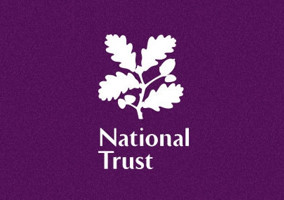The National Trust has been criticised in the national media after volunteers objected to some of its activity to mark the 50th anniversary of the partial decriminalisation of homosexuality.
Volunteers said that they objected to the ‘outing’ of Felbrigg Hall’s last owner, Lord Ketton-Cremer, in a short film produced for as part of the charity’s Prejudice and Pride events.
They also complained about being forced to wear rainbow badges and lanyards and the story appeared on the front page of the Daily Mail on Saturday.
News that volunteers had been “sent home” was covered by the Eastern Daily Press on Wednesday.
Then on Thursday the Daily Telegraph reported that volunteers risked being “banished to backroom chores” and on Saturday the Mail reported that there was a “mutiny” at the Norfolk property with up to 75 volunteers threatening to quit.
Josie Gallagher, who has quit in protest, told the Mail that being forced to wear the badges is “a denial of volunteers' rights”.
Initially the charity had defended its film and said that volunteers were expected to “uphold the values of the organisation” but it later said that wearing the badges was optional.
The charity has also been criticised by MPs and media over its handling of the situation and people have threatened to cancel their membership.
Controversy over badges
At first the charity said that wearing the badges was an “international symbol of welcome”.
On Friday evening the charity issued a statement from its head of volunteering and participation development, Annabel Smith, which said: “All of our staff and volunteers sign up to our founding principles when they join us – we are an organisation that is for ever, for everyone. We are committed to developing and promoting equality of opportunity and inclusion in all that we do regardless of age, disability, gender reassignment, marriage and civil partnership, pregnancy and maternity, race, religion or belief, sex and sexual orientation.
“Relating specifically to the Prejudice and Pride programme, we do recognise that some volunteers may have conflicting, personal opinions.
“However whilst volunteering for the National Trust we do request and expect individuals to uphold the values of the organisation. We encourage people with any concerns to chat to our teams. As part of Prejudice and Pride we have worked closely with Stonewall and the University of Leicester who have been providing training and support to help as many volunteers as possible feel confident to take part.”
But on Saturday the charity issued another statement changing its position, in which it said that wearing the badges was optional.
The charity said: “However, we are aware that some volunteers had conflicting, personal opinions about wearing the rainbow lanyards and badges. That was never our intention.
“We are therefore making it clear to volunteers that the wearing of the badge is optional and a personal decision. We will be speaking to all our volunteers at Felbrigg over the coming days about this issue.”
Invasion of Ketton-Cremer’s privacy
Others said that their objection to the exhibition at Felbrigg was because Ketton-Cremer had chosen to keep his sexuality private during his lifetime and that the National Trust should not have exposed it.
Tristram Powell, a godson, told the Mail: The “outing” of him by the trust for its own commercial reasons feels mean-spirited.”
The charity inherited the Felbrigg Hall in Norfolk in 1969 and it has denied ‘outing’ Ketton-Cremer and that it had intended to share a “fuller portrait” of the property’s former owner as part of a series of exhibitions around the country.
In a statement it said: “We are proud to share a fuller portrait of Robert Wyndham Ketton-Cremer and do not attach shame to his sexuality. The people we interviewed were clear that we weren’t ‘outing’ him because amongst those who knew him, this was widely accepted.”
The film is narrated by comedian Stephen Fry, who defended the film.
He said: “Some have asked why this is necessary – why the lives of people who challenged conventional ideas of gender and sexuality should be made public and celebrated in this way. The answer is quite simple – to do anything less is to suggest that same-sex love and gender diversity is somehow wrong, and keeping these stories hidden only lets prejudice – past and present – go unchallenged.”
Ongoing criticism
The Telegraph said that “scores” of people had written to it saying that they will cancel their membership.
According to the newspaper the National Trust said that 240 people had said that they were terminating their membership, but 5,000 people became members in the last week of July. The charity has nearly five million members.
The charity said it remains committed to the six-week Prejudice and Pride programme taking place at its properties.
Related articles












